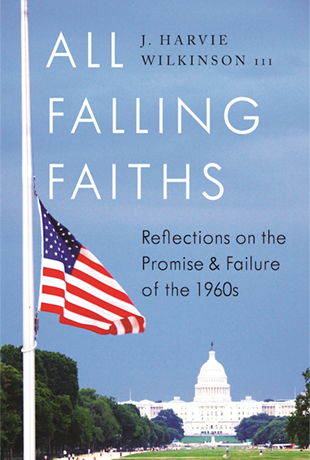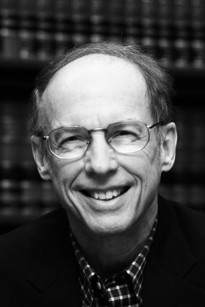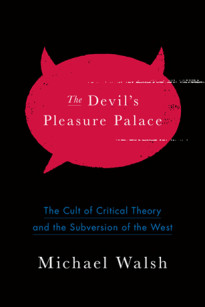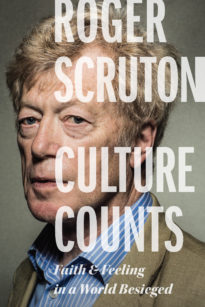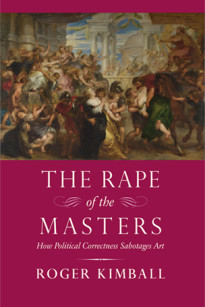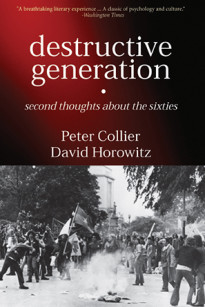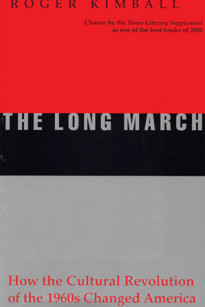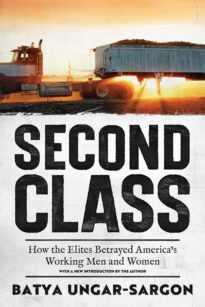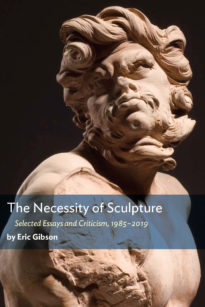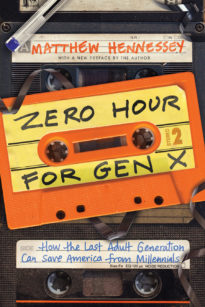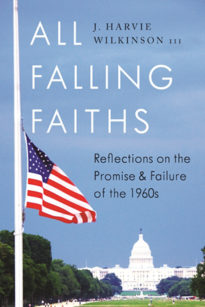It has been building for a long time. New York Times columnist Frank Bruni notes that “for a solid decade the percentage of Americans who said that the United States was on the wrong track had exceeded the percentage who said it was on the right track,” often by astounding and increasing numbers. He “wondered about a change in the very psychology and identity of a country once famous for its sunniness about tomorrows.”
The mindset of eternal negativity is something the 1960s helped to load upon us. It is not a burden we should ever accept. The values the Sixties scorned; the chaos they engendered; the divisions they spawned—these are not our fates! Great enduring constants exist in this world that may yet guide us. From that burnt and ravaged forest of a decade may still spring the shoots of America anew.
But to overcome the Sixties, we must first understand them. One must sometimes first go back in time in order to move forward.
As a federal judge for more than thirty years and counting, I feel some days I’ve earned the right to reminisce. Maybe all my generation has.
But reminiscence is a mellow flight over a time, even a lifetime, amiably spent. No one should ever “reminisce” about the 1960s. Those years are memory’s scorched earth.
I too am almost afraid to go back. That decade spared me none of itself: its lack of humor, its self-absorption, its fear of age, its resentment of authority, its rush to confrontation, its grim, bleating fret with the Establishment.
So why not leave those years behind? Because it was there—in the Sixties—that feelings toward home, work, school, church, and flag forever changed. The 1960s did not end in 1970. They haunt us even now. Many Americans sense the world unraveling around them and wonder why. They want to know why they feel anxious about all that awaits their children and grandchildren. There are many reasons why, but one of the big reasons is the 1960s.
It is too easy to blame all that happened in the 1960s on student radicals. Certainly the mindless nihilism of the radicals was destructive, but the radicals alone could not have maimed our country. Those who were supposed to lead and guide our nation—the generation that so inspired America in the Depression and World War II—also abdicated their duty and let us down in the 1960s.
Together, those who challenged authority and those who exercised authority made the Sixties an experience in lethal blindness. No one could see. The angry left saw no good in America. The Establishment saw almost nothing bad. No one foresaw the lasting damage the Sixties would inflict. No one sensed the Sixties would shake our foundations even today.
I know many Americans believe the 1960s was one of the greatest decades ever. They believe that the decade made our country more equal and more just: that African Americans and eventually all minorities benefited more from the 1960s than from any time since the Civil War; that women became freer to make choices about home, children, husband, and career than ever before; that Americans learned from the debacle of Vietnam that the greatest power in the world could overreach. Many good people think the 1960s accomplished many good things, and I wholeheartedly agree with them.
Few decades did so much good for America as the 1960s. But no decade inflicted so much continuing harm. The Sixties gave us some wonderful things, but this very gift has caused us to downplay the decade’s darker side. Righting terrible social wrongs should never have come at such a horrible cost: so much lasting loss of faith in this great land.
In the 1960s, we lost much of the true meaning of education, much of our capacity for lasting personal commitments, much of our appreciation for the rule of law, and much of our sense of rootedness and home. We started to lose also the sense of those things that are larger than ourselves: the desire for service, the feeling for country, the need for God.
Many of those arguing about the 1960s today never lived through them. To live in the Sixties was exhilarating at best, but disturbing and harrowing most of the time. You enjoy a ride on the roller coaster at the fair because you know the ride will end. With the Sixties, we never knew. And the ride goes on.
